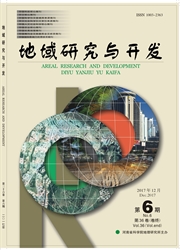

 中文摘要:
中文摘要:
基于“一带一路”战略背景,分析中国与周边国家的经济联动关系,运用Multilevel P2 模型分析国家之间的经济互动,从组织结构层次和个体层次探讨国家间经济联系形成的机制.研究发现:稳定的政治环境是促进经济联动的基础,区域内部的贸易与投资等能够加速国家之间的经济联系;资本存量、产业结构等因素具有提供者效应,劳动力、基础设施等因素具有接受者效应,都能够增加国家之间的经济联动性.
 英文摘要:
英文摘要:
The development of China is not separable from the world, the world is also inseparable from Chi-na, China and other countries is a community of destiny, regional economic cooperation has become an important driving force behind economic development currently. This paper studies the economic linkage between China and its neighboring countries based on Multilevel P2 model and investigate the mechanism of the formation of the nation-al economic ties from individual-level and organizational structure. It is important that a stable political environment is the foundation for economic linkage, intra-regional trade and investment can accelerate economic ties between countries;capital stock, industry structure have provider effect;labor, infrastructure and other factors have the re-ceiver effect. They are able to increase the likelihood of economic linkage between the countries. The analysis help to build a community of interests between China and neighboring countries, services for the promotion of mutual benefit and joint development services.
 同期刊论文项目
同期刊论文项目
 同项目期刊论文
同项目期刊论文
 期刊信息
期刊信息
